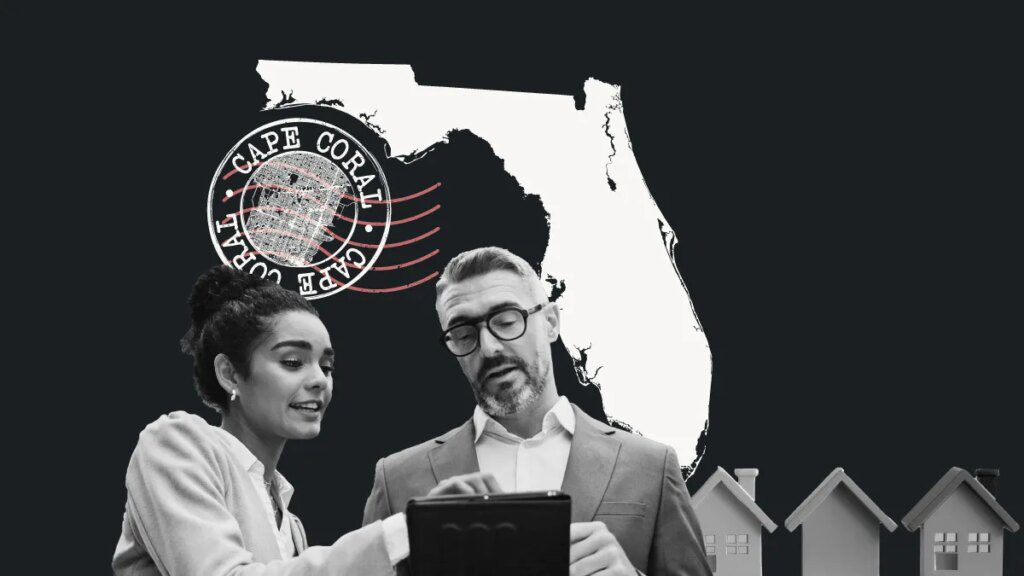Cape Coral Housing Market: Pandemic-Era Boom and the Road to Stabilization
The Cape Coral real estate market has captured national attention with its dramatic home price surge during the COVID-19 pandemic, fueled by remote work trends, historically low mortgage rates, and an influx of buyers relocating from northern states. However, experts agree the unprecedented growth seen between 2020 and 2022 is no longer sustainable, ushering in a period of market adjustment and stabilization.
Rapid Home Price Growth During the Pandemic
Between early 2020 and mid-2022, the Cape Coral-Fort Myers metropolitan area experienced a remarkable 75% increase in median home sale prices. According to Redfin, prices peaked at around $441,000 in April 2022, ranking the region among the fastest-appreciating housing markets nationwide.
Expert Insight: Unsustainable Spike
Yisbel Bera, a Cape Coral real estate agent with eXp Realty’s Kingdom Group, highlighted this unsustainable surge:
“There’s a lot of inventory now and interest rates are high. The prices between 2020 and 2022 were unreal and unsustainable for this area. It seems like 2025 is when we’ll see a full market correction.”
Christine Blasses of Century 21 Selling Paradise agrees, noting that a realistic baseline for home price growth should be anchored to pre-pandemic metrics rather than pandemic highs.
“Between 5% and 8% annual growth is normal. The spike in 2021 and 2022 was abnormal and impossible for most buyers to keep up with.”
Inventory and Insurance Costs: Key Market Influences
Inventory dynamics have shifted notably since the pandemic. Data from the Royal Palm Coast Realtor Association (RPCRA) and Florida Gulf Coast MLS (FGCMLS) shows Cape Coral’s available housing inventory has risen sharply—from 773 homes in October 2021 to over 3,000 homes in June 2025.
How New Construction Affects Insurance and Affordability
Cape Coral’s growing inventory is partially driven by new construction, which has important ramifications for homeowners’ insurance costs:
- New homes are built up to modern flood codes, reducing insurance premiums.
- Florida’s insurance market has diversified recently, with more companies offering competitive rates.
Karen Borrelli, president of RPCRA and FGCMLS, notes:
“While prices surged during the pandemic, new insurers entering the market and code-compliant new builds are helping lower homeowner insurance costs, reducing apprehension among buyers.”
Market Indicators Point to Balance
- Median Home Sale Price in June 2025: $371,850 (up modestly from $369,000 in October 2021)
- Sale-to-List Price Ratios: Approximately 100% in 2025 versus 97.7% in 2021
- Inventory Supply: 7.3 months in June 2025 compared to 1.3 months in 2021
Blasses explains the implications:
“A balanced market typically has 4 to 6 months’ inventory. Cape Coral’s current supply leans slightly towards a buyer’s market but does not indicate distress. It reflects a much-needed balance between buyers and sellers.”
A Market Stabilizing Without a Crash
Concerns have arisen about a possible repeat of the 2008 housing crash, particularly given the rapid appreciation and subsequent cooling. However, market experts highlight crucial differences:
- Stricter regulations and oversight have been implemented since 2008 to prevent mortgage fraud and risky lending.
- The post-2008 period saw steady, healthy growth averaging 8-9% annually in Cape Coral, reflecting strong fundamentals.
- The 2020-2022 boom was driven by demand pressures rather than speculative frenzy.
Bera states:
“What happened in 2008 involved widespread mortgage fraud and lack of regulation. Today, the market operates under much stricter rules. I don’t foresee a 2008-type meltdown here.”
Blasses concurs:
“Risky lending and speculative buying, which fueled 2008’s problems, are not present now, so a crash like that is unlikely.”
Navigating Affordability and Natural Disaster Risks
Hurricane Ian’s Impact and Updated Flood Zones
The aftermath of Hurricane Ian in 2022 has led to revisions in FEMA’s flood maps, expanding designated flood zones in Cape Coral. While this initially raised concerns among buyers, calmer sentiments prevail due to:
- Modern construction guidelines for new homes enhancing resilience.
- Increasing availability of programs to strengthen hurricane-proofing.
Bera emphasizes:
“Some buyers express concerns about flood zones, but new construction and mitigation programs help make homes safer and insurance more affordable.”
Weighing Waterfront Lifestyle Against Risks
Living on Florida’s coastline comes with inherent risks tied to natural disasters. Yet, many residents accept these risks for the rewards of waterfront living:
Blasses explains:
“There’s always a risk of hurricanes or flooding, but that’s true of many desirable areas nationwide. Living on the water is a lifestyle choice, and people understand the trade-offs.”
Key Takeaways for Cape Coral Homebuyers and Sellers
- Post-pandemic price corrections are underway after an extraordinary two-year surge.
- Growing housing inventory and stabilized pricing are creating a more balanced market.
- Insurance costs are becoming more manageable due to new construction and insurer competition.
- The market is regulated and robust enough to avoid a 2008-style crash.
- Natural disaster risks are real but increasingly mitigated by modern building codes and programs.
For those interested in Cape Coral real estate trends, staying informed about these evolving factors is crucial for making sound buying or selling decisions. To explore current listings and market data, visit the Royal Palm Coast Realtor Association or Florida Gulf Coast MLS.
Related Resources
- Understanding Florida Homeowners Insurance
- FEMA Flood Map Service Center
- Cape Coral Economic Development
By recognizing the market’s historical context and current trends, buyers and sellers can confidently navigate Cape Coral’s real estate landscape as it transitions into a healthier and more sustainable phase.


